Members and school projects

In spring 2018, during the pre-launch phase of the project 2, 324 schools took part in the Democratic Schools for All online survey. You can read more information about it here.
Address: Alexandriei Str., No. 196, Contesti, Teleorman County
Country: Romania
Project: Give a colour to your school
 Working language during the project:
Working language during the project:
- Romanian
 Themes of the Council of Europe campaign “FREE to SPEAK, SAFE to LEARN - Democratic Schools for All” covered:
Themes of the Council of Europe campaign “FREE to SPEAK, SAFE to LEARN - Democratic Schools for All” covered:
- Making children’s and students’ voices heard
- Tackling discrimination
- Improving well-being at school
 Competences from the Reference Framework of Competences for Democratic Culture (CDC) addressed and where / how they were integrated:
Competences from the Reference Framework of Competences for Democratic Culture (CDC) addressed and where / how they were integrated:
- Valuing human dignity, human rights and cultural diversity
Through the drawings on the wall, students demand respect for children's rights and human dignity. Each story drawn ends with a call to respect one child's right. The characters and stories created are influenced by the cultural diversity of the children.
- Analytical and critical thinking skills
The students had some sessions in which they first created the character and the story of his/her events. The framing of the story in the realities of the surrounding world shows the students' abilities to think critically and to analyze the world in which they live.
- Knowledge and critical understanding of the world: politics, law, human rights, culture, cultures, religions, history, media, economies, environment, sustainability
The subjects of the stories drawn on the wall show that the students know and understand the realities of the world. Topics presented: pupils discriminated against by the mayor, pupils who are not allowed by their parents to go to school, Roma pupils discriminated against in New York shops, pupils who are not allowed to participate in a talent contest because the family has a religion that prohibits this, etc.
 Target group age range:
Target group age range:
- 11 - 15
 Level of education:
Level of education:
- Lower secondary education
Short description of the project:
At the end of 2015, we received a proposal from the Center for Education and Training "Sintagma", to participate in a cultural project initiated by the Komunitas Association, that will end with the painting by the students of one of the school halls, project funded by EEA Grants. We accepted the proposal and thus became one of the seven schools in Romania where this project was implemented.
I presented the project to the students and I informed them that the first 20 students to register will be accepted unconditionally. The following types of students registered: Roma students, pupils with parents who went to work in another country, pupils at risk of school dropout, institutionalized pupils, pupils with a parent who had passed away, pupils from a family of teachers, pupils whose father was a policeman, etc.
In the first meetings, the students invented a character around which they created a more or less fantastic story. The characters created were inspired by the world they live in.
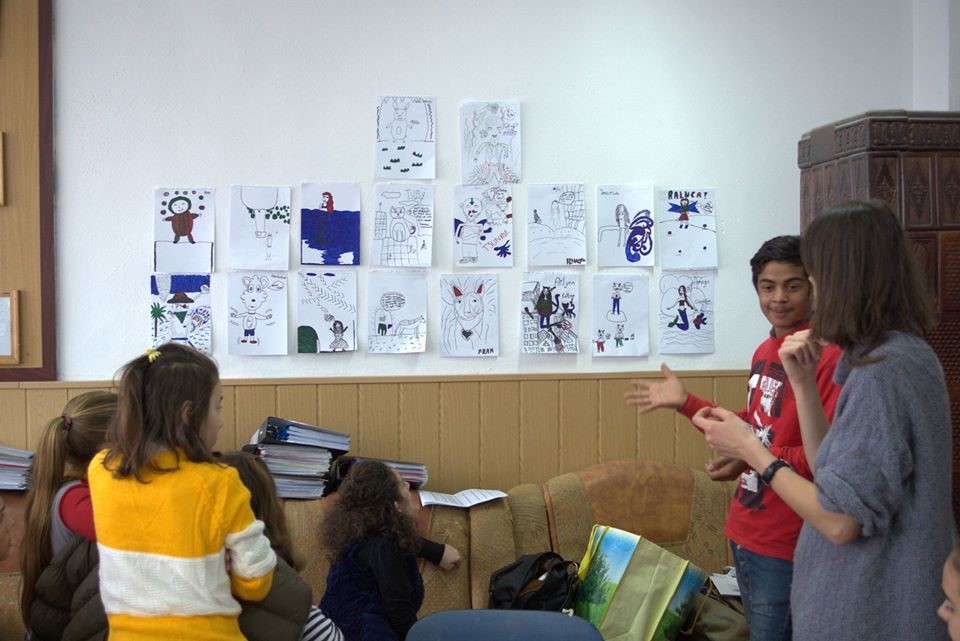
The stories created by the students were translated into a series of drawings, and the end drawing shows one of the children's rights being upheld.
One of the stories drawn is of a character called Bob Ars who is a disabled baby sponge who cannot participate in the marathon and receives help from a friend who gives him a wheelchair…
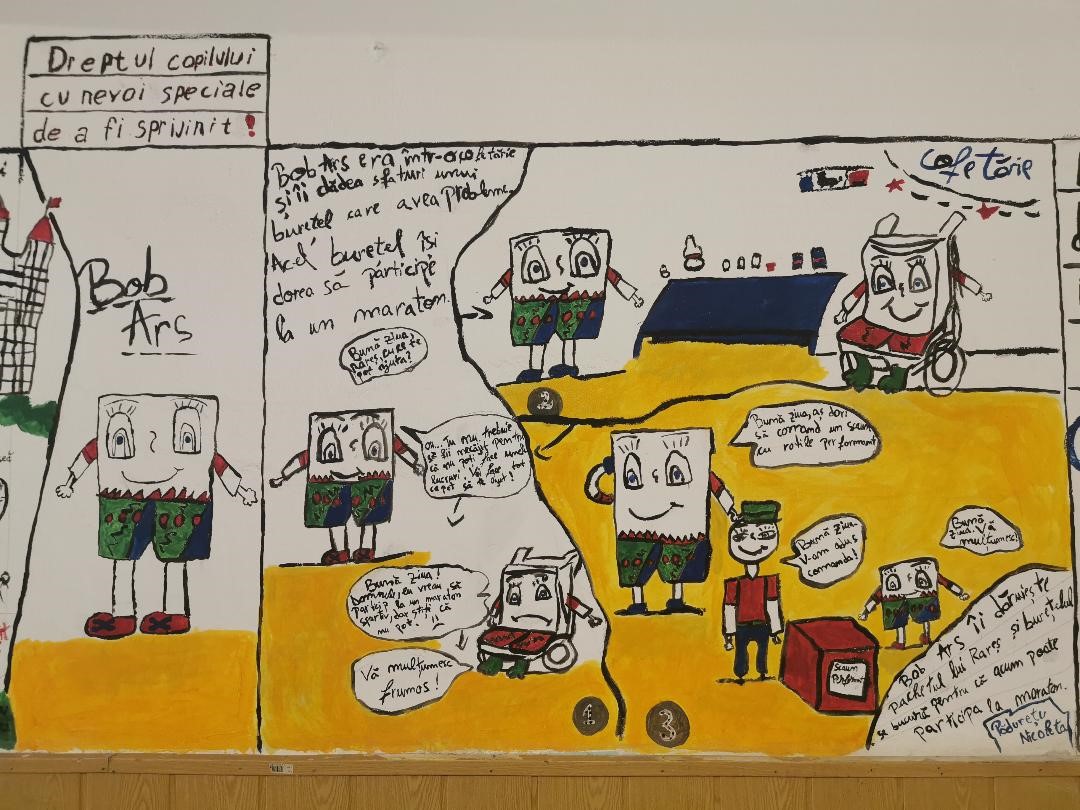
The story of Ioana, the girl whose parents who don't come to a children's show because of their religion…
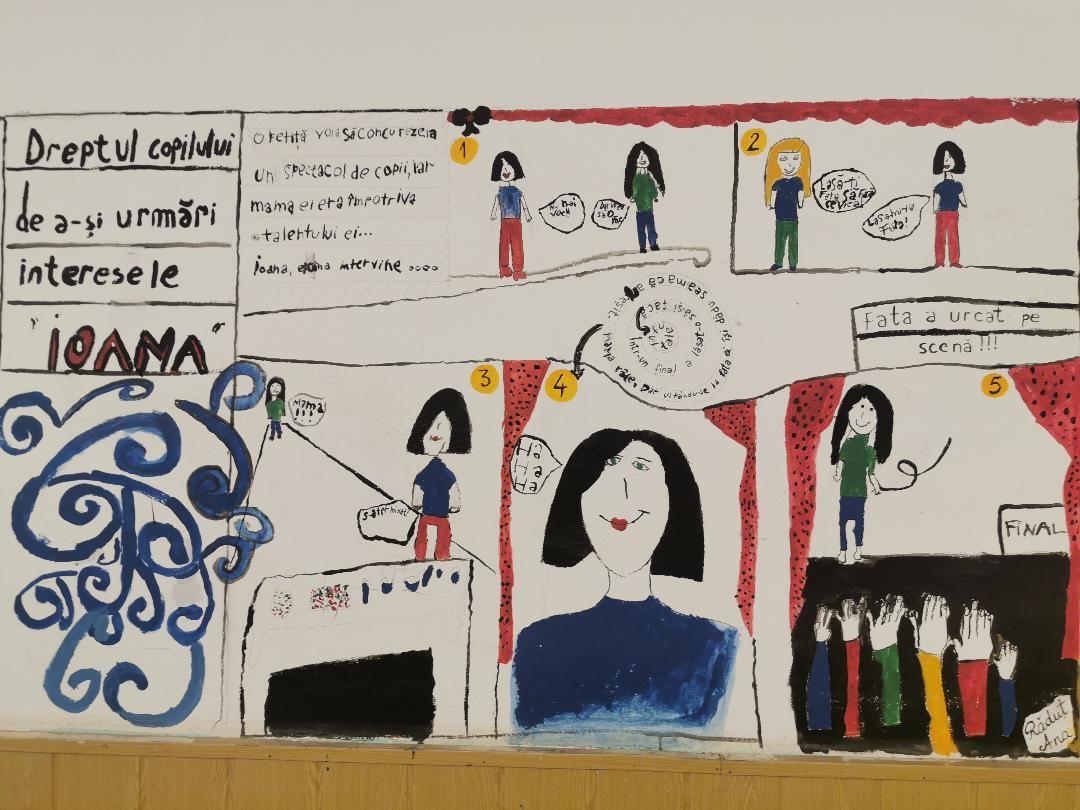
The story of Eduard, the child of “another” ethnicity who is not welcome in a New York pharmacy…
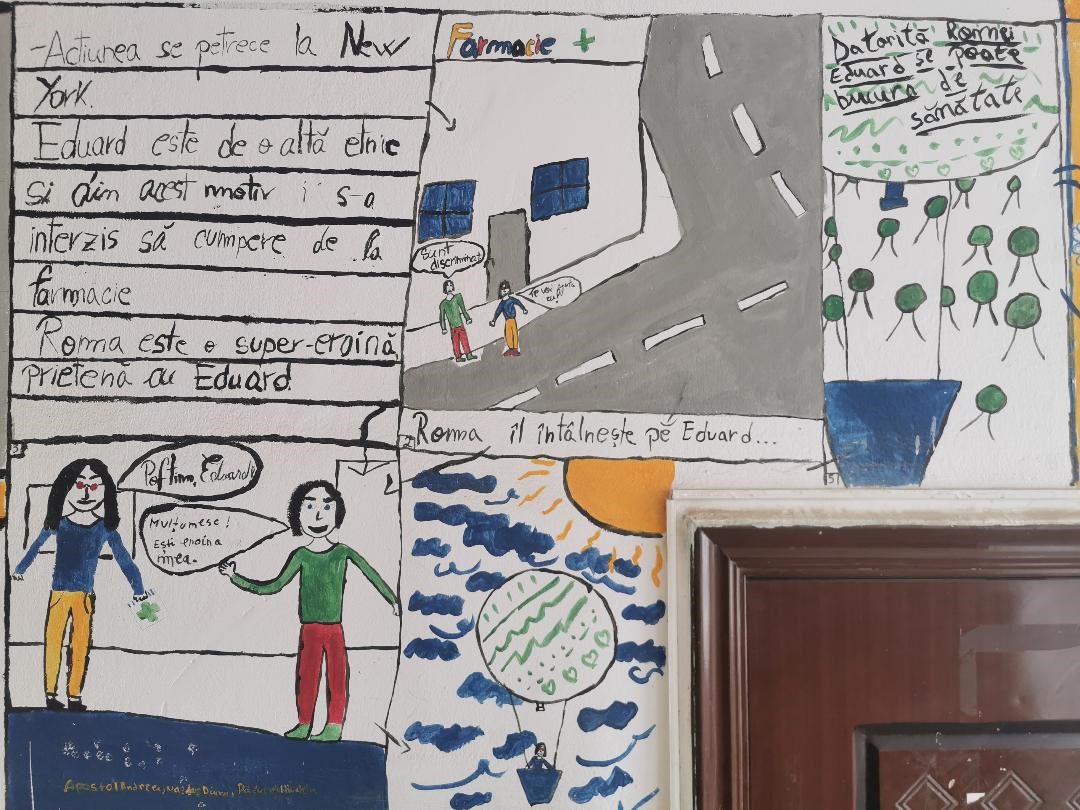
The story of the children and the hero AYSY who saved them from the mayor who made them work during the summer holidays…
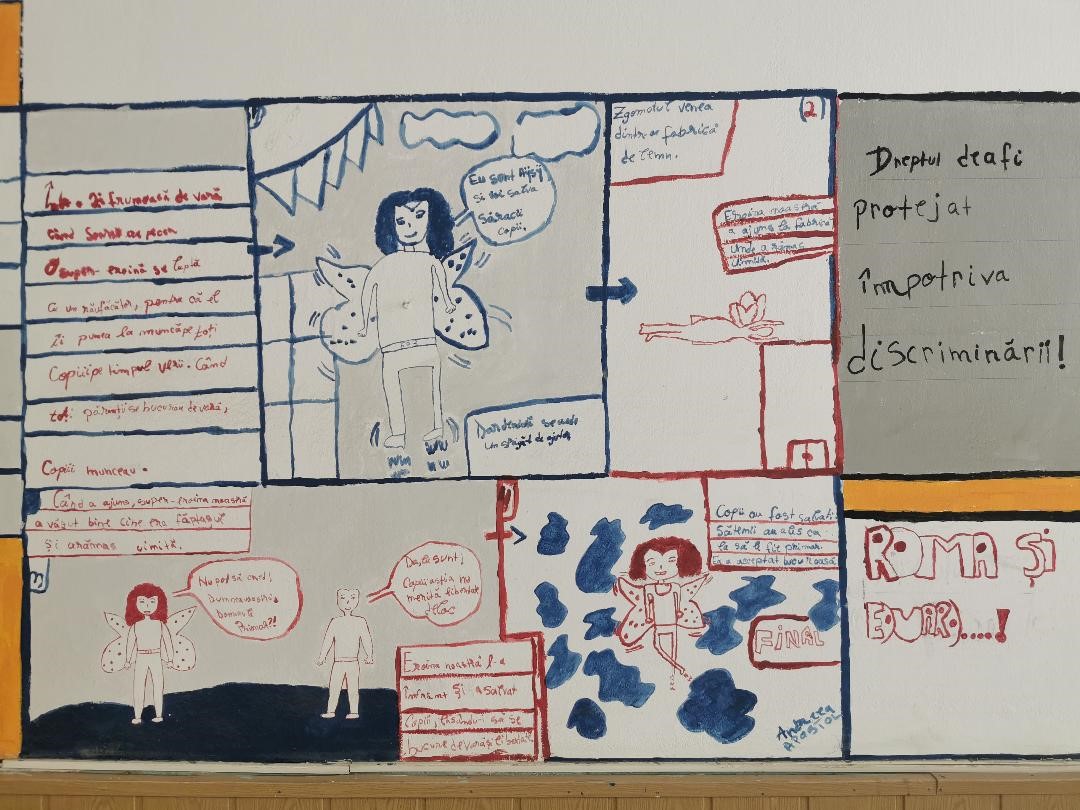
The story of Summer, the wolf that was not received at school because he was a "wolf" ... and the wolf is bad ...

Coordination of the wall painting at school was carried out by plastic artist, Delia Popa. She did not participate in the students’ work and only gave technical indications. The practical activity took place over a 2-week period during the students’ spring break. It was the Easter holidays and the students loved coming to school so much that parents were forced to call and ask why their children were so late.
The project ended with an exhibition attended by parents, teachers and directors of neighbouring schools, the local media and of course the school’s students.
The painting on the wall has not been damaged since it was painted, because students have taken ownership of the painting and consider it their contribution to our attempt to transform the school into a friendly school.
 Time-frame of the project:
Time-frame of the project:
September 2015 - April 2016


